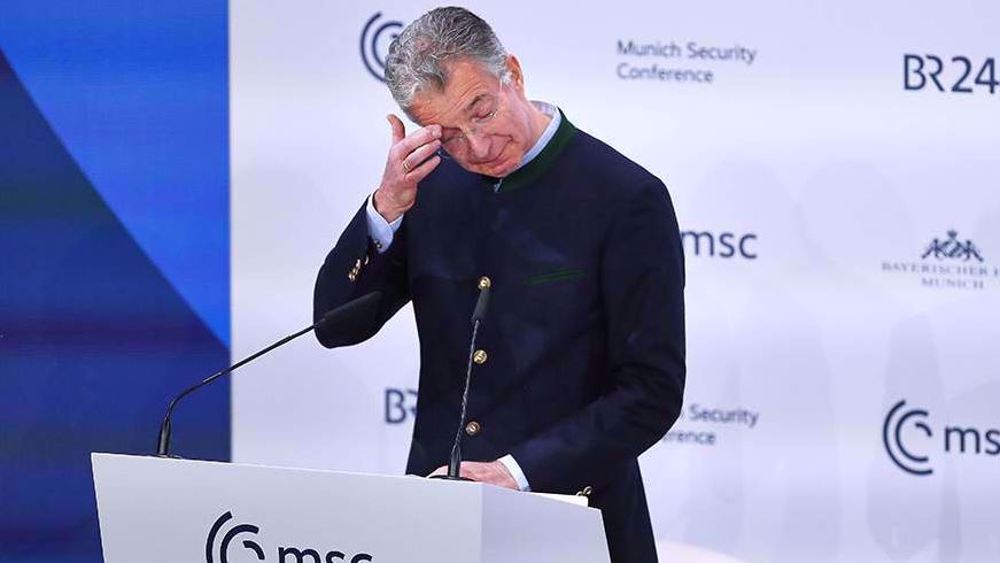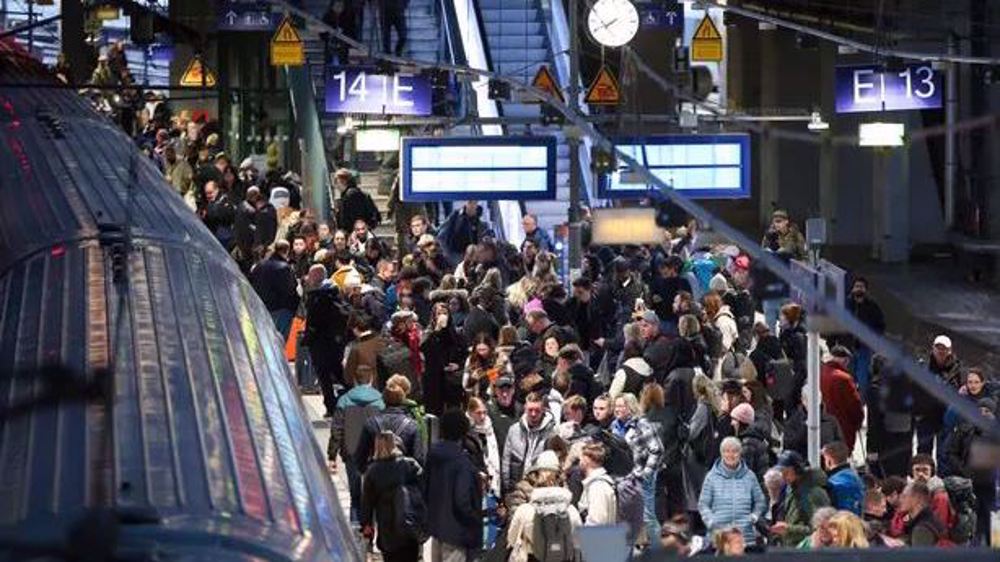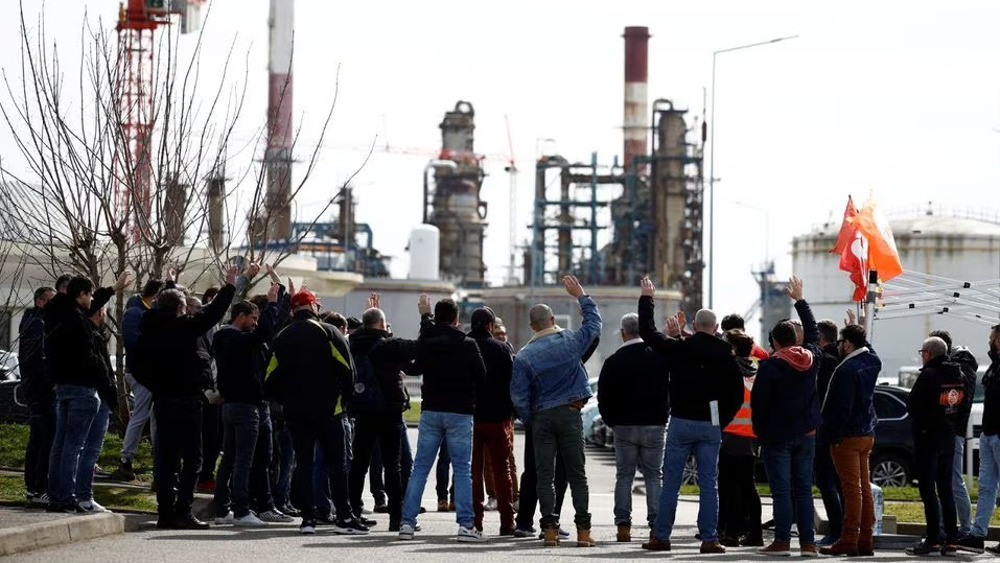Germany mega-strike: Nationwide transport strike begins, causing travel chaos
Germany faces a major transport disruption as workers at airports, ports, railways, buses and metro lines started a nationwide strike on Monday, demanding pay hikes amid soaring inflation.
The 24-hour walkout was announced by the Verdi union, which represents nearly 2.5 million public sector employees, and EVG, which represents 230,000 workers in the railways and bus companies.
“A labor struggle that has no impact is toothless,” Verdi chief Frank Werneke was quoted as saying by the German public broadcaster Phoenix.
While acknowledging that the strike would inflict pain on commuters, he stressed that “one day of strain” with the hope of reaching a wage agreement is better than weeks of industrial action.
The nationwide strike comes as employers, primarily the state and public sector companies, have rejected Verdi's demand for a 10.5 percent rise in monthly salaries, and EVG's demand for a 12 percent rise for the workers it represents.
In a bid to prevent supply gaps, Germany’s transport minister Volker Wissing on Sunday ordered states to lift restrictions on truck deliveries, while asking airports to allow late-night takeoffs and landings “so stranded passengers can reach their destinations.”
However, according to German media, all major international airports in the country have been affected by Monday’s strike with around 400,000 passengers believed to have faced delays or cancellations.
In Frankfurt, all incoming and outbound flights have been canceled or delayed by a full day. In a tweet, the airport announced that airport operations "will be heavily disrupted" throughout today and there will be "no regular passenger flights".
Due to a strike by the German Union ver.di airport operations will be heavily disrupted at Frankfurt Airport throughout today. There will be no regular passenger flights. Passengers are requested to contact their airline and refrain from traveling to the airport. pic.twitter.com/5pGSlzvTPS
— Frankfurt Airport (@Airport_FRA) March 27, 2023
The German airport association had earlier estimated that about 380,000 air travelers would be affected on Monday with what local media dubs the “mega-strike”, while the state-owned rail company Deutsche Bahn (DB) expected it to have a “massive impact” on its entire rail network.
In recent months, Germany has been hit by strikes in several sectors, including the postal service, airports and local transport. Workers demand higher pay to cope with soaring inflation that hit 8.7 percent in February and the rapidly aggravating cost-of-living crisis.
Like other European countries, Germany has been struggling with skyrocketing inflation since the start of the war in Ukraine last year that massively pushed up food and energy prices.
Russia launched its "military operation" in Ukraine in February 2022 following Kiev’s failure to implement the terms of the 2014 Minsk agreements and Moscow’s recognition of the breakaway regions of Donetsk and Luhansk.
Since then, the US and its European allies have imposed unprecedented economic sanctions against Moscow while supplying many consignments of heavy weaponry to Kiev.
Earlier this month, airports in Bremen, Berlin, Hamburg and Hanover canceled more than 350 flights after security staff walked out. Bus and metro staff in Frankfurt also organized a strike.
Monday's walkout in Germany, which is set to bring the country to a grinding halt, comes as the industrial action in neighboring France over President Emmanuel Macron's pension reform plans has emerged as a massive political crisis with protesters calling for the president’s ouster.

Munich Security Conference chairman weeps over deepening division in NATO

German police arrest protesters at pro-Palestinian rally

German scholars: New antisemitism resolution threatens academic freedom
Official: Iran mastering construction of nuclear power plants
‘Doctors Against Genocide’ demands US Senate stop Trump
Fearing Hezbollah, Israelis refuse to return to northern settelments
Malcolm X, civil rights icon who challenged Zionism and advocated for Palestine
Exclusive: IRGC chief says Iran ready to confront any attacks
New resistance emerging from Syria’s occupation: Iran security chief
Arab leaders meet to counter Trump’s Gaza depopulation plan
VIDEO | Yemeni villagers struggle to save their farmlands amid US-Saudi blockade












 This makes it easy to access the Press TV website
This makes it easy to access the Press TV website